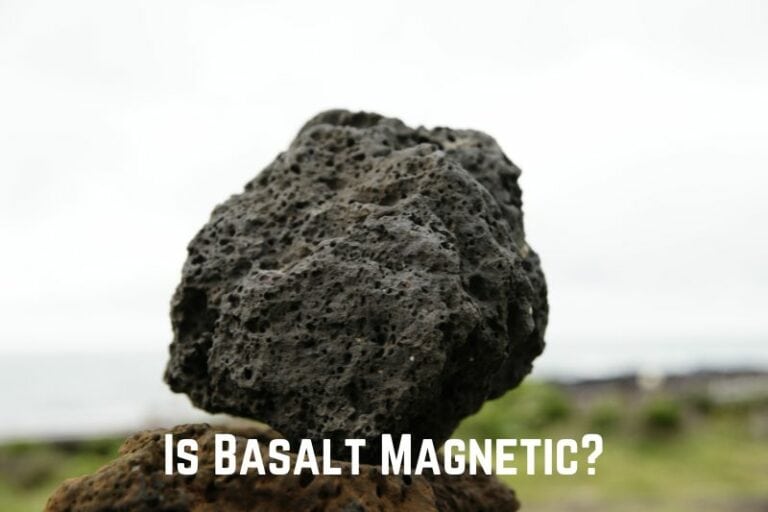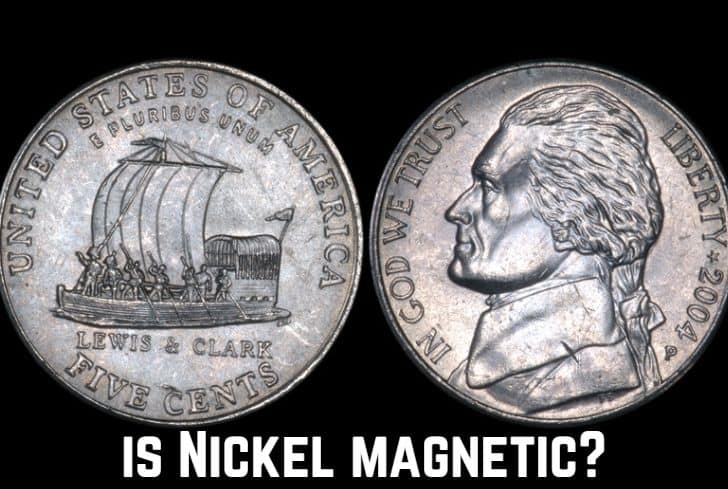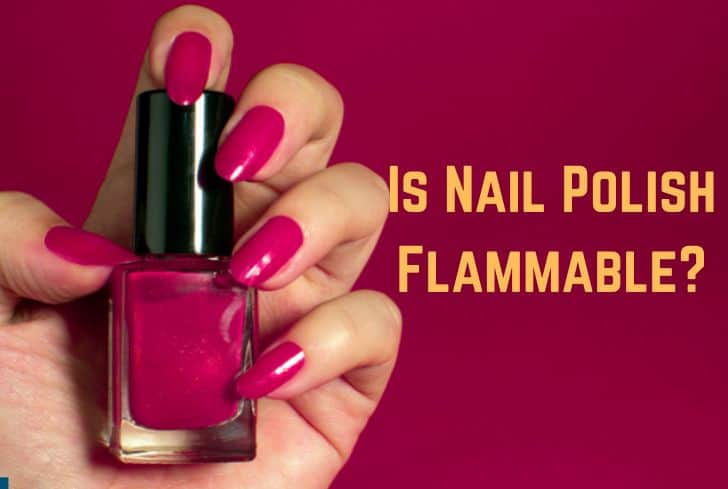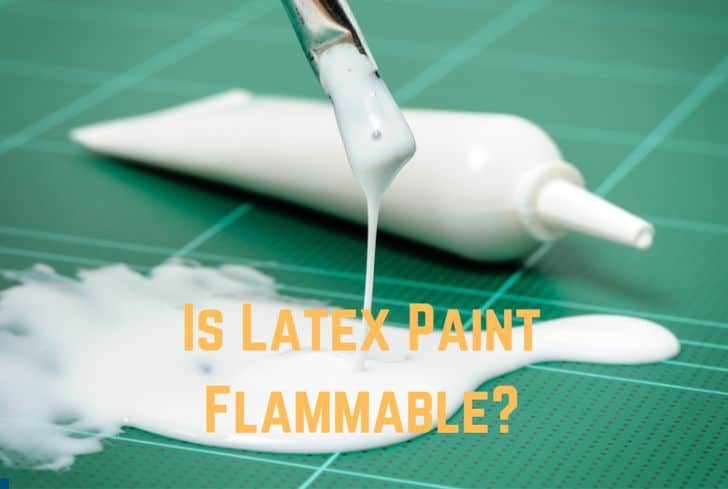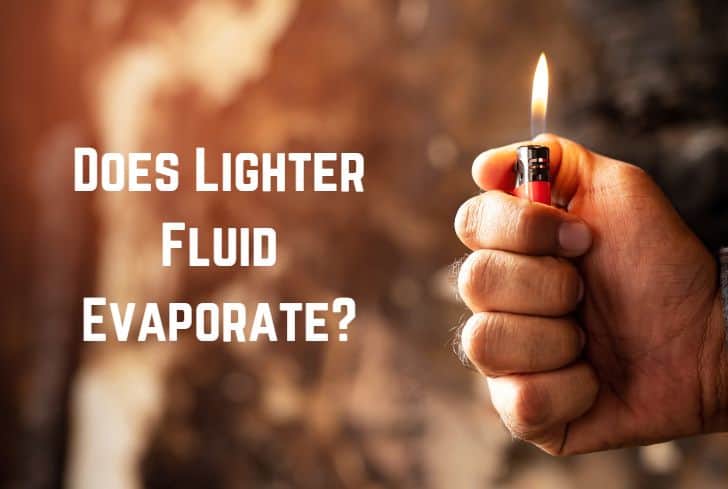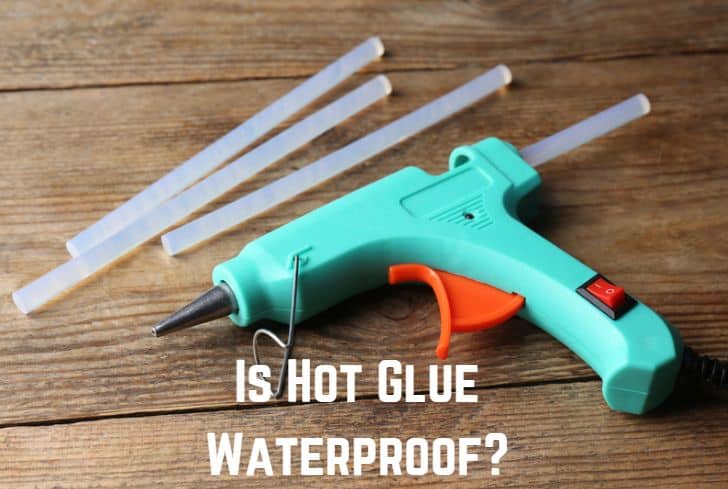Does Bleach Evaporate? (No. It Does Not)
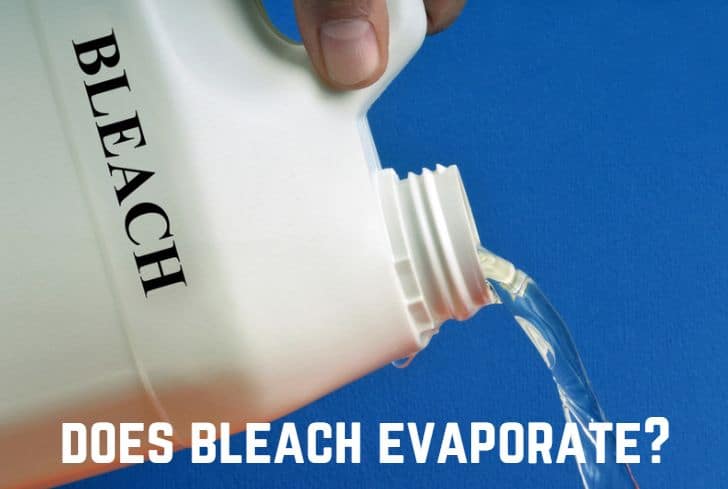
Nowadays, most people use bleach more frequently when cleaning. Bleach, as a household cleaner, has been used to kill viruses and germs in the air and remove stains. Even if you use it to clean your house and destroy bacteria and germs, you still wonder if it stays on the surfaces long enough to do the job. Does bleach evaporate?
In this article, we will answer that question. We’ll also discuss whether bleach evaporates when diluted, how long it takes to evaporate, and whether it evaporates in the sun. It will be interesting to find out how long the bleach smell lasts if it evaporates in water and whether it stays toxic after drying. Finally, we offer tips on how to store bleach to prevent evaporation.
Read: Does Vinegar Evaporate?
Does Bleach Evaporate?
Bleach does not evaporate. It is a white solid material that contains sodium hypochlorite as a chemical. You must mix bleach and water before use. Instead of evaporating, bleach goes through a chemical breakdown process. In high temperatures, the water component of bleach evaporates, leaving sodium chloride behind. As “by-products,” bleach also releases oxygen and chlorine gas.
At room temperature, sodium hypochlorite is a white solid that doesn’t evaporate. Sodium hypochlorite (NaOCL) naturally breaks down at room temperature to produce highly pure oxygen gas. At lower pH values, sodium hypochlorite releases chlorine gas.
Learn more about sodium hypochlorite in bleach: Bleach Analysis Lab
For bleach to degrade, hardly much is required. Anything strong enough to cause the bleach to oxidize after interaction will lead to its degradation. When exposed to light, bleach naturally breaks down. Because it helps to slow down deterioration, sodium hydroxide is a common ingredient in commercial bleaches.
How Long Does It Take for Bleach to Evaporate?
Although bleach doesn’t evaporate, it loses effectiveness after 24 hours. However, it only occurs when bleach is mixed with water or exposed to high temperatures. Since bleach works best when diluted with water, its potency decreases as soon as the water evaporates.
Bleach gradually reacts with oxygen when exposed to air, diminishing some of its effectiveness over time. You’ll notice that bleach is no longer as effective as it once was and that its fragrance has diminished. Salt and oxygen are the products of the decomposition of sodium hypochlorite bleach. The oxygen is released into the atmosphere, leaving the salt behind.
Does Diluted Bleach Evaporate?
Bleach that has been diluted does evaporate, but only the water component. Sodium hypochlorite is the main component of bleach. Bleach will split into two chemicals when you add water, sodium, + hypochlorite. Sodium hypochlorite is neither reactive nor active and is left behind after water evaporates. After all the water has evaporated, just sodium hypochlorite, sodium chloride, and sodium hydroxide remain.
But it’s important to remember that bleach is most unstable when diluted. It often breaks down quickly, and the water content will evaporate more quickly. Bleach frequently settles to the bottom of the container because it is heavier than water. Now, the water in the container’s top will evaporate more quickly. The bleach continues to deteriorate due to exposure to light and temperature.
Read: Does Dry Ice Evaporate?
Does Bleach Evaporate in the Sun?
When bleach is subjected to the sun, it disintegrates rather than evaporates. It breaks down into salt water. However, sunlight accelerates the pace at which the water in the bleach solution evaporates. The sun’s UV radiation rapidly increases the breakdown of bleach. Bleach will lose some of its effectiveness when a breakdown takes place.
As a cleaning and disinfecting agent, bleach will lose its effectiveness. Even though it is no longer usable, properly dispose of it. If bleach is not correctly disposed of, its active ingredients can cause environmental damage. Bleach disposal is strictly regulated and should be done so per the guidelines.
Is Bleach Still Toxic After Drying?
Yes, even after drying, bleach remains toxic. When the water evaporates from the bleach solution, sodium hypochlorite crystals are left behind. These crystals are still toxic. If your pet licks these crystals, they will indeed become sick. Small quantities can still be irritating even if they might not be fatal. The esophagus and stomach of your pet will be poisoned by bleach.
Even small amounts of hydrogen peroxide in the bleach can make your pet vomit. Hydrogen peroxide will harm the body more severely in large enough quantities. It is strongly advised to use heavily diluted bleach.
It’s also important to remember that bleach reacts violently with other chemicals. That increases the toxicity of bleach. Dry bleach is poisonous to surfaces when left on them for an extended period and is dangerous to animals. Their accumulation can be challenging to clean as well.
How Long Will Bleach Smell Last?
The smell of bleach is overpowering and, depending on the amount you use, can linger for a while. The smell will linger longer if there is a higher bleach concentration. Expect the smell of bleach to remain on the surface for 10 to 60 minutes after use. That is also how long bleach stays active after coming into contact with a surface.
Unfortunately, the smell quickly turns toxic during this time. When the smell of bleach gets toxic, it poses a health danger. If you have bronchitis or asthma, you only need to smell bleach in small amounts to make you feel the effects. The following factors will determine how long the bleach smell lingers.
- The size of the area in which you applied the bleach.
- The airflow and ventilation in the space.
- The quantity of bleach you used.
Opening the windows and doors is the greatest approach to lessen the bleach odor. By circulating that air, the bleach smell is eliminated. To help eliminate the bleach odor, think about using fans and air conditioners.
Does Bleach Evaporate in Hot Water?
In hot water, bleach does not evaporate. Because bleach only has 6-7% active components, with the remaining 93% being water, evaporation only occurs for the water. The bleach component reacts with the dirt, bacteria, and stains in your laundry, getting rid of them. It is reduced in your garments by the bleach’s reaction, not necessarily by evaporation.
It’s safe to combine hot water and bleach. However, its water content will evaporate at a faster rate. It would be best to use bleach and hot water in a well-ventilated place because the fumes irritate your nose and mouth.
Additionally, bleach’s components degrade more quickly in hot water. You should only use it with cold or lukewarm water if you want to use it for longer. Using hot water to dilute your bleach will be advantageous if you do laundry. The bleach will act more quickly, thanks to the heat. Since the fumes are contained in the washing machine, you won’t be much affected.
How to Store Bleach to Prevent Evaporation?
It’s important to remember that bleach begins to break down as soon as it is diluted. When diluting bleach, only make enough to last up to 24 hours. Bleach will lose its capacity to eliminate stains and kill germs once it begins to degrade. Storing it well is the only way to avoid evaporation and ensure safety.
Here are some tips for properly storing bleach to avoid evaporation:
- Avoid using glass or any other container that contains a different substance, and only keep bleach in its original container. Preferably the container should be opaque to prevent light which also increases degradation. Changing containers increases the possibility of reacting with other cleaners and could speed evaporation.
- To avoid accidental spillage, store it high on shelves. Additionally, you’ll protect it from curious children who might be tempted to open the containers. Not only will you prevent your children from accidentally drinking bleach, but you’ll also prevent evaporation from accelerating by closing the containers.
- Store bleach away from places warmer than 50 to 70 0F (10 to 21.1 °C). Anything above that will cause the bleach to lose its strength. That is the recommended temperature range. As a result, bleach should be kept in a cool, dry location out of direct sunlight.
Frequently Asked Questions
What happens if you leave the bleach on a surface for too long?
Bleach will change the color of a surface if it is left on it for too long. You shouldn’t keep bleach on the surface for longer than eight hours unless you intend to change the surface’s color.
Remember that bleach contains water, which evaporates and dries up. Eventually, poisonous sodium crystals are all that are left. If you leave these dangerous crystals lying about, your pets could come into contact with them and lick them, possibly harming them.
Is bleach flammable?
Unless it also contains sodium hypochlorite, bleach is not considered flammable. It also contains chemicals that can fuel a fire by acting as oxidizers. For instance, if you use bleach to clean several surfaces in your house and a fire starts, the chemicals in the bleach will cause the fire to spread more quickly.
Despite not being flammable, bleach can still explode. The other chemicals oxidize and explode when bleach is combined with ammonia and acetylene.
Read: Does Brake Fluid Evaporate?
Conclusion
Instead of evaporating, bleach degrades. The water component of bleach is to blame if you observe that your bleach is evaporating. Sodium hypochlorite, the chemical component, is still a solid crystal that, after more drying, turns into salt.
The bleach smell lasts for no more than an hour. After 24 hours, bleach that has been diluted loses its effectiveness.

